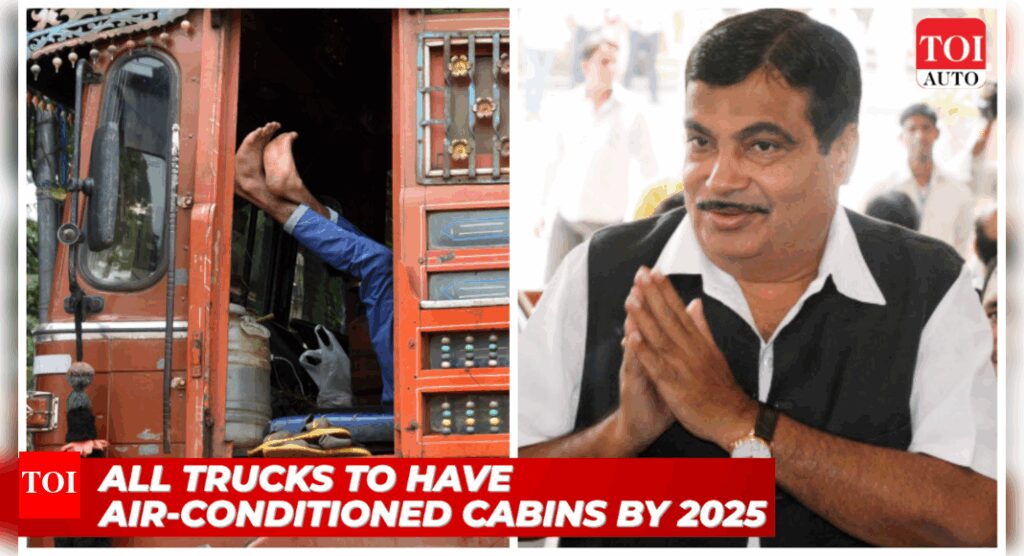New Air-Conditioning Mandate for Trucks
In a significant move for truck drivers nationwide, Union Minister for Road Transport and Highways Nitin Gadkari has introduced a proposal requiring all truck cabins to be equipped with air conditioning by 2025. This change aims to alleviate the discomfort faced by truck drivers who typically spend up to 12 hours in a cabin lacking adequate cooling or ventilation, apart from the airflow from open windows.
Currently, the majority of trucks operating on Indian roads are produced by domestic manufacturers, many of whom do not yet offer air-conditioned cabins on a large scale. In contrast, international brands like Volvo, Scania, and BharatBenz already provide air-conditioned options, but their market presence remains limited.
Officials estimate it will take manufacturers at least 18 months to comply with this new requirement, which is why the deadline has been set for 2025. The road transport ministry initially proposed the air-conditioning mandate back in 2016. Gadkari noted, “Our drivers work in temperatures ranging from 43 to 47 degrees Celsius, and we need to consider their working conditions. I was eager to implement the AC cabin mandate upon becoming minister, but some voiced concerns about the increased costs.”
Preliminary evaluations suggest that adding air-conditioning to existing truck models in India will raise their purchase price by approximately Rs 10,000 to Rs 20,000. Unlike many other countries, India lacks regulations limiting the working hours for truck and bus drivers before they are required to take a break. Implementing reforms like the AC cabin mandate could enhance the well-being of truck drivers and contribute to safer roads.
Industry Reactions
Commenting on this development, Satyakam Arya, Managing Director & CEO of Daimler India Commercial Vehicles, expressed support for the initiative: “We are delighted to learn about the minister’s intention to enforce air-conditioning in trucks. We fully endorse this move, as it will create a more comfortable work environment for drivers, reduce fatigue, and lower the likelihood of hearing loss associated with long hours in non-air-conditioned cabins. Additionally, it will positively impact fleet productivity.”
Arya anticipates that this mandate will help phase out the prevalent cowl truck cabins in the Indian market. As India has made strides in emissions regulations over recent years, there is also a pressing need to enforce safety standards alongside them. Currently, crash safety norms for truck cabins in India are inadequate, with even the ECE R29-02 standard still not mandated, which focuses on crash safety protection up to the windshield’s lower edge.
“Europe has already adopted the ECE R29-03 standard, which provides comprehensive crash safety for the entire cabin,” he added. BharatBenz heavy-duty truck cabins already meet ECE R29-03 standards, implemented voluntarily even before regulatory requirements were established.


